The Daniel K. Inouye Asia-Pacific Pacific Center for Security Studies, in partnership with the Lanzhou Branch, Chinese Academy of Sciences, conducted a multi-national workshop on “Improving Science and Security Collaboration: Climate Change and Environmental Security in High Asia” in Beijing, China, November 3-6.
This workshop brought together 40 security professionals, policy makers and scientists to explore the need for cross-sectoral collaboration to address the complex issues of climate change and its impacts on water and food security in mainland Asia. Security professional attending the workshop were from: Afghanistan, Bangladesh, China, India, Kazakhstan, Mongolia, Nepal, Pakistan, Sweden, Tajikistan, the United States, and from the United Nations Development Program (UNDP).
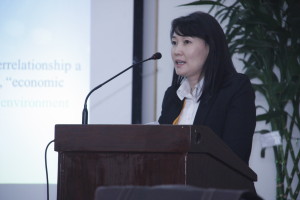
Ms. Tumenjargal Shukh, Mongolia National Security Council, speaks on Climate Change & Security — National Approaches.
According to DKI APCSS professor Dr. Scott Hauger, the workshop objective was the “establishment by participants of a continuing mechanism for information exchange between scientists and engineers and security professionals in the Asia Pacific region that substantially influences policy and operations.”
Topics presented at the workshop included: glacier research and water security, desertification research and food security, and extreme weather events and disaster relief. Breakout sessions addressed the workshop objectives and proposed and endorsed 19 specific ways ahead to address the knowledge needs prerequisite to improving environmental security in Asia.
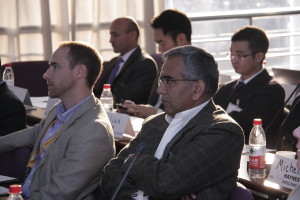
Participants listen to panel presentations during the Plenary session. Front left to right: Mr. Shannon Knight (U.S. Pacific Command) and Brigadier Farid Ahmed (National Defense University, Pakistan). Back left to right: Mr. Mulosami Samiev (Committee for Emergencies and Civil Defense, Tajikistan), Mr. Alexander Yuan (U.S. Embassy Beijing), and Dr. Guo Jian (Cold and Arid Regions Environmental and Engineering Research Institute, China).
Workshop attendees identified a regional need for actionable knowledge to address the security impacts of climate change. This included new systems for enhanced data creation and sharing, integrated climate and environmental security research, and, regional sharing of expertise for capacity development. Participants agreed to work together to address these needs by collaborating on several initiatives for the development and dissemination of knowledge and best practices at the intersection of climate-related research and environmental security.
-END-



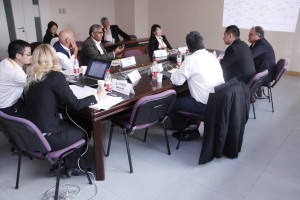
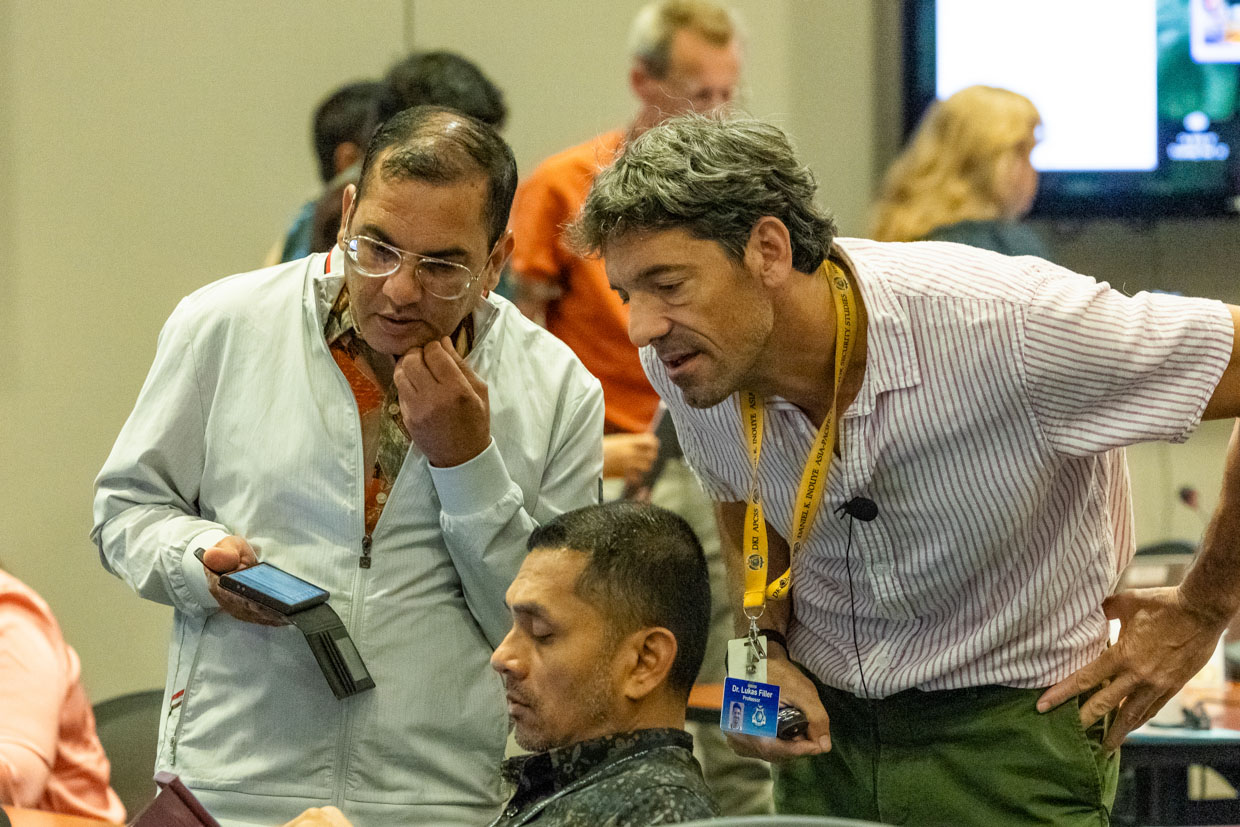
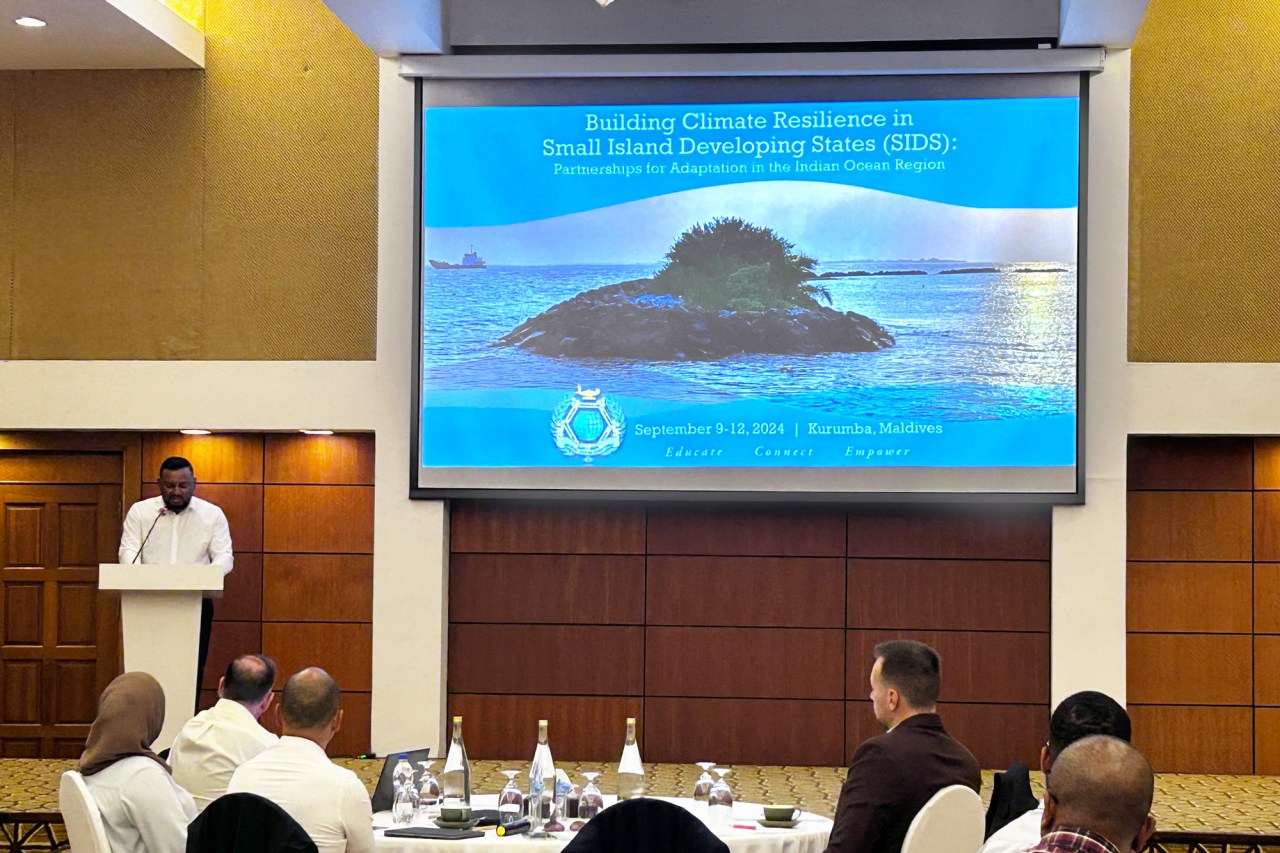
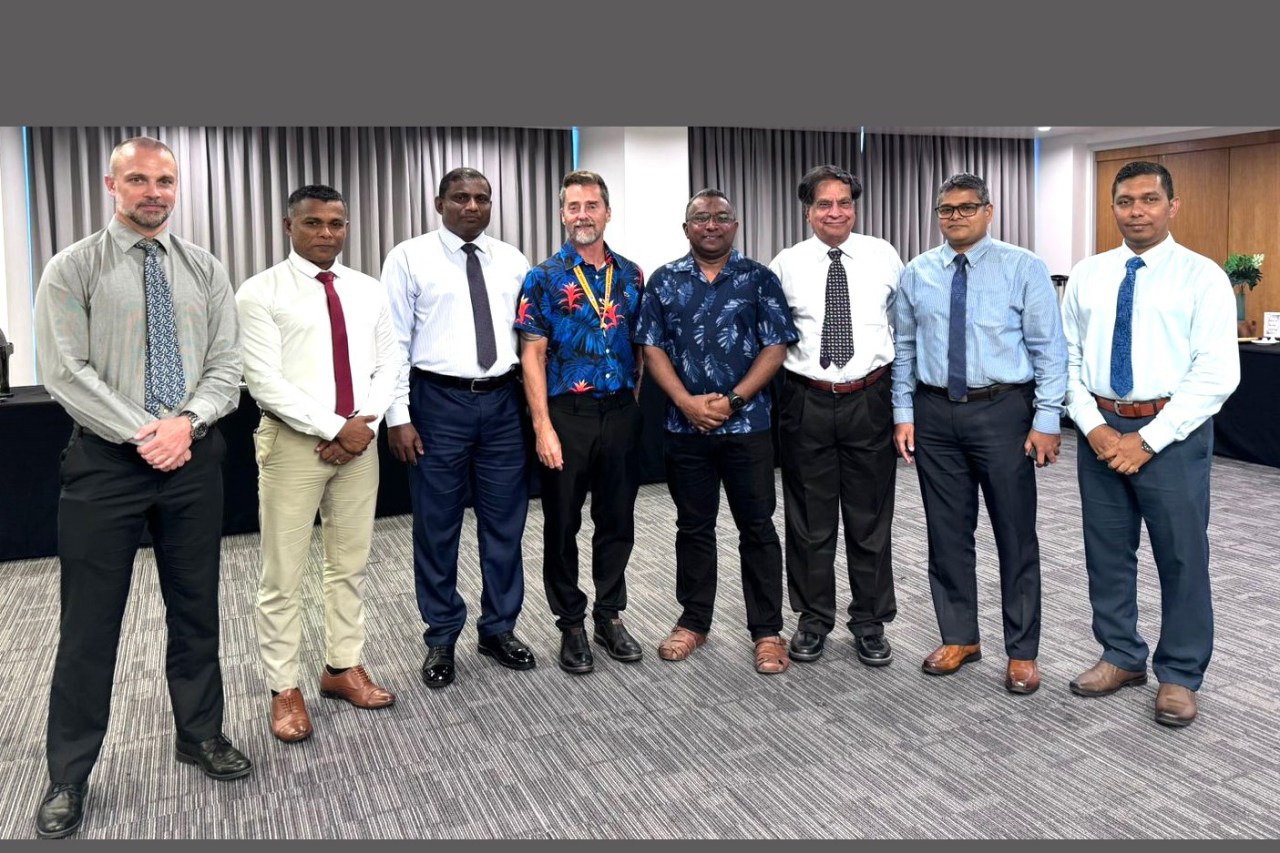


Leave A Comment